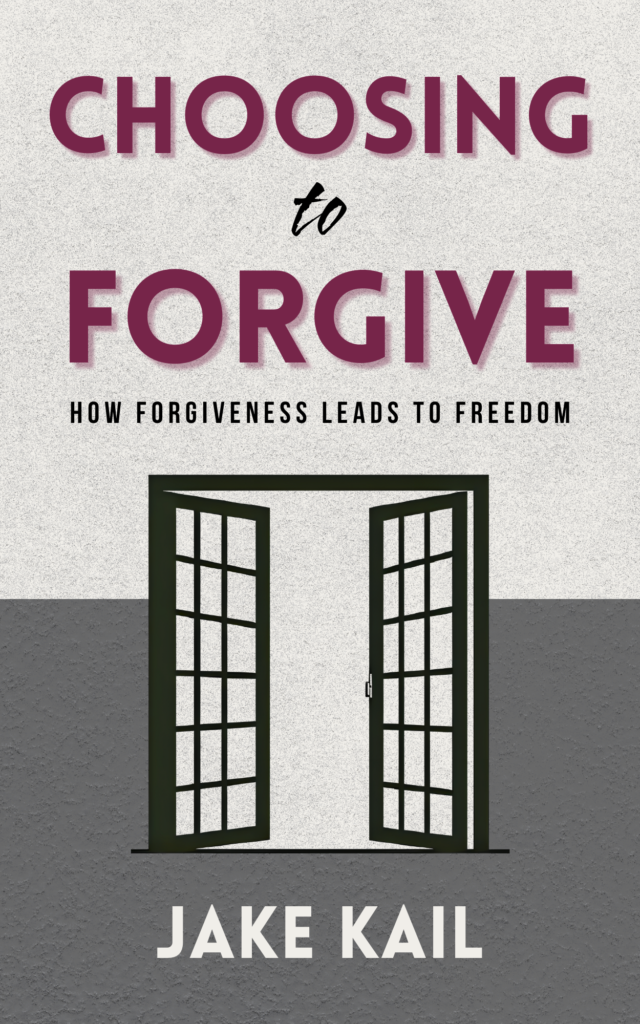
Forgiveness Opens the Prison Door
October 28, 2025
Three Revelations That Come From Seeing Jesus Clearly
November 19, 2025
The following is an excerpt from Choosing to Forgive that teaches from the Parable of the Unforgiving Servant and shows the high cost of unforgiveness.
We have looked at several teachings about forgiveness in the New Testament. But there is another weighty passage that deals with this topic in a parable that Jesus told in Matthew 18. This parable drives home the two sides of forgiveness and shows us the spiritual consequences of unforgiveness. It is the story of a person who wanted to receive one side of forgiveness but not the other. Take time to read through this story below, slowly taking in what is being communicated.
Then Peter came to Him and said, “Lord, how often shall my brother sin against me, and I forgive him? Up to seven times?” Jesus said to him, “I do not say to you, up to seven times, but up to seventy times seven. Therefore the kingdom of heaven is like a certain king who wanted to settle accounts with his servants. And when he had begun to settle accounts, one was brought to him who owed him ten thousand talents. But as he was not able to pay, his master commanded that he be sold, with his wife and children and all that he had, and that payment be made. The servant therefore fell down before him, saying, ‘Master, have patience with me, and I will pay you all.’ Then the master of that servant was moved with compassion, released him, and forgave him the debt. “But that servant went out and found one of his fellow servants who owed him a hundred denarii; and he laid hands on him and took him by the throat, saying, ‘Pay me what you owe!’ So his fellow servant fell down at his feet and begged him, saying, ‘Have patience with me, and I will pay you all.’ And he would not, but went and threw him into prison till he should pay the debt. So when his fellow servants saw what had been done, they were very grieved, and came and told their master all that had been done. Then his master, after he had called him, said to him, ‘You wicked servant! I forgave you all that debt because you begged me. Should you not also have had compassion on your fellow servant, just as I had pity on you?’ And his master was angry, and delivered him to the torturers until he should pay all that was due to him. “So My heavenly Father also will do to you if each of you, from his heart, does not forgive his brother his trespasses.” (Matthew 18:21-35)
Peter asked Jesus a question about how many times he should extend forgiveness to someone who sins against him. I imagine that he thought Jesus would be pretty impressed with his offer to forgive up to seven times. But Jesus raised the bar. His use of “seventy times seven” was a way of essentially saying: Lose track of how many times you forgive. You should always forgive those who sin against you. He went on to explain Himself with the parable about servants and a king, often referred to as the Parable of the Unforgiving Servant.
We can clearly see the two sides of forgiveness at work in this parable. The servant in the parable was delighted to have his debt erased but was not willing to extend the same benefit to his fellow-servant who owed him a much smaller amount. He wanted one side of forgiveness but not the other. The end result was that he ended up in a prison, afflicted by torturers. I believe this is a clear symbolic picture of what happens in the spiritual realm when we walk in unforgiveness, bitterness, and resentment. It places us in captivity and gives demonic spirits access to torment and oppress us.
Let’s take a closer look at the two sides of forgiveness in light of this parable.
1. Receiving Forgiveness from God
The servant in the parable owed the king a debt that he could never pay back. Jesus’ use of ten thousand talents is meant to portray such a large amount that the servant would not be able to get out of debt, even though he pleaded with the king for patience and promised to pay back what he owed. Faced with the prospect of being sold into slavery along with his wife and children, he begged for mercy. The king was moved with compassion and released the servant from the whole debt. Can you imagine the weight that was lifted off of his shoulders? Can you imagine the joy that flooded his soul?
Those of us who have experienced the forgiveness of God should be able to relate to this. We too had a debt that we could never pay, facing dire consequences because of our sins. We too came to God in repentance and asked for mercy. And we too have had the debt of sin lifted off of our shoulders. We must never forget this beautiful experience of God’s love and forgiveness, freely given to us because Jesus has paid our debt!
We don’t deserve God’s forgiveness, but He offers it out of His love for us. It is in light of the mercy and forgiveness of God that He calls us to forgive others. We receive forgiveness from Him, and we extend forgiveness to others.
2. Extending Forgiveness to Others
When the man who had received such an extravagant gift of forgiveness came across a fellow-servant, he remembered that this man owed him some money. The amount of 100 denarii that Jesus used is intentionally exponentially smaller than the amount that the servant had just been forgiven. While it was a valid debt, it was not even close to comparable. This demonstrates that while the sin of others against us is real, it is actually miniscule in comparison to what our sin against God equates to. To be clear, this does not justify the sin against us or make it any less painful. It simply puts things in a different perspective. What made the king so upset in the story is that the servant refused to extend the same forgiveness to others that he had just received. It is in view of the work of the cross and the price that Jesus paid for us to be forgiven that God commands us to forgive others.
Unlike the servant in this parable, we must learn to walk in forgiveness toward the ones who have sinned against us or caused us pain. This can be difficult to do, especially when the hurt is deep and the pain is real. But God will give us the grace to forgive from the heart. He will help us and enable us to release the ones who have hurt us, intentionally or unintentionally.
The Cost of Unforgiveness
Just like the unforgiving servant was handed over to torturers, harboring bitterness, resentment, or unforgiveness toward others is an open door for demonic oppression. It is important to understand that withholding forgiveness from others does not hurt them, it hurts you. Unforgiveness puts us into a spiritual prison and gives the devil permission to torment us. This is not because God wants us to be tormented but because we have violated the principles of His Word. Unforgiveness that continues to go unchecked is a serious issue and a major root cause for many other problems.
God’s offer of forgiveness from sins through the shed blood of Christ is an unparalleled gift of mercy. But we cannot expect to receive this extravagant gift without also being willing to forgive the ones who have wronged us. Forgiveness is like a coin—it has two sides, and you can’t take one side without the other!
Click image below to purchase:
We live in a fallen world that is full of broken people. It is inevitable that as we walk through life, we will experience hurt and be sinned against by others to one degree or another. How we respond to these situations has a dramatic impact on our life, relationship with God, and destiny.
Choosing to Forgive gives biblical teaching and encouragement to help you release the ones who have hurt you so that you can walk in the freedom that God has for you.




